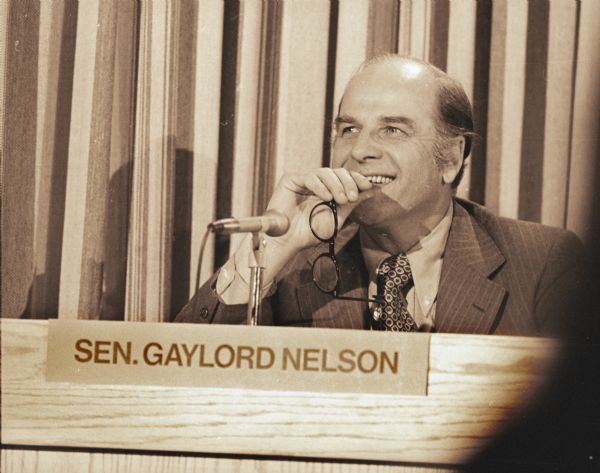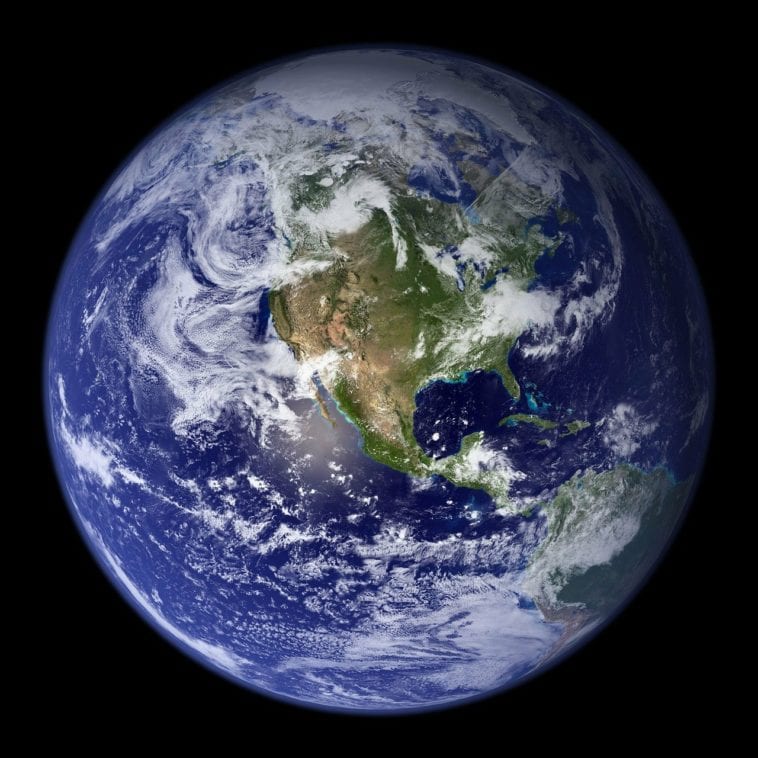Make every day Earth Day by doing things with love for others and nature. Reduce waste in your daily routines from bath times to shopping.
Let’s dig deeper about this unique and historically significant holiday so we can also impart the urgency of this day’s advocacy to everyone. Get inspired to honor our planet each day with these 51 actionable tips on sustainable living.
What is Earth Day?
The 22nd of April marks the anniversary of the existence of the modern environmental movement back in 1970. With that, it has been annually known to celebrate the anniversary of the modern environmental movement. This celebration emerged voices that woke every human being in regarding awareness of and consciousness about the condition of our planet.
At present, we will be celebrating the 51st Earth Day anniversary this April 22. And although it has been going on for 51 years, which is about more than half a century, not everyone is aware of what it means to celebrate Earth Day and why we celebrate it. Thus, only the root words ‘Earth’ and ‘day’ can already give an initial definition, but not entirely why it is celebrated.
Here’s a deep dive on Earth Day and its essence.
History of Earth Day
It initially began with the observation regarding the consistent air pollution in the United States of America going back before the modern environmental movement. People, especially those in big businesses, lived with practices that use lots of lead and other fossil fuels that emit bad toxins in the air. Quite a deliberation between either these people lacks knowledge of the probable consequences of their actions, or it could be simply because they do not care at all. After all, the effects are not YET knocking on their doors.
With this, the concern regarding air pollution and the condition of the environment is getting more attention. However, it was not yet settled because there were fewer engagements by people in the past, as others have other priorities, which is to earn money to survive.

Senator Gaylord Nelson was ever since concerned regarding the condition of the environment in the United States of America. His concern even heightened after witnessing the massive oil spill in Santa Barbara, California. Imagine the chills it brought towards activists and environmental organizations during that time. It was horrible!!
As per research, it was the largest oil spill that has ever occurred at that time, until in 2010, it ranked third after the Deepwater Horizon issue. Hence, inspired by the anti-war movement and protests, he wanted to infuse a similar action that focuses on air and water pollution awareness. Senator Nelson announced the idea for a teach-in on college campuses to the national media and persuaded Pete McCloskey, a conservation-minded Republican Congressman, to serve as his co-chair. It then resulted in recruiting Denis Hayes, a young activist.
He built a national staff of 85 people whose job was to promote events across nearby locations until it widened gradually, with not only exclusively keeping the range of organizations between environmental activists but also other groups. As it grew wider every month, its essence and primary goals were able to reach the public’s hearts. Hence, they edited the name into Earth Day by April 22, 1970. Thus, the beginning of the widely known celebration, Earth Day.
But before the official inauguration of Earth Day, Rachel Carson’s book entitled Silent Spring in 1962 served as an alarm that moved some people regarding the awareness and concern for living organisms, the environment, and the connection that links pollution to public health. However, it took at least seven years to actualize the awareness and movement the environment needs to reach the public.
Nevertheless, the goal of awareness was achieved and is still alive even after a half century!
Why is Earth day important?
According to National Geographic, “Earth Day is an annual celebration that honors the achievements of the environmental movement and raises awareness of the need to protect Earth’s natural resources for future generations.” Its scope is limited to honoring achievements throughout the years of environmental movements and the actions that we must partake in to preserve the wellness of the environment, not only for us but also for the future generation.
Hence, we can say the Sustainable Development Goals also anchored their goals in the 1970 environmental movement – which its focus is not only for the wellness at present but also concerning the future generation.
Today, Earth Day is the most significant secular movement globally, with billions of people every year who participate in the fight to continuously maintain the wellness and nourishment of the environment. Despite the growing infection of COVID 19 for about a year now, the need to take action towards climate change and other environmental concerns, fortunately, is still as urgent as before.
Since its inauguration in 2015, Paris Climate Agreement is continuously showing good progress despite the overshadowing quite harsh effects. Furthermore, at the end of 2020, the global CO2 emissions dropped by 7.6% and are continually dropping each year, according to the United Nations Environment Programme’s Emissions Gap Report 2019.
As you can see, the progress mentioned above and improvement reports show that Earth Day is as important as anything else. Even if we are not the first ones to experience the gradual changes, we can notice the good effects it brings overtime. Considering the ongoing pandemic as a test of humans’ vulnerability, it did not create a roadblock for environmental actions. Fewer people going out of their homes have a good effect on the environment, reducing carbon emissions from cars and other transportation.

Moreover, as the world suffers from oil spills, polluted rivers and airs, and other degredation, Earth Day’s role played significantly and is still holding a great significance up to the time being. Now, it is with great significance because it is our responsibility to take care of our planet as it is the only planet at the time being that can accommodate our human needs.
Second, taking care of our planet means taking care of ourselves. As much as Earth suffers, we are also experiencing its pain as we live around and across its corners. Climate Change affects our livelihood, our shelter, and other resources. Thus, by taking part in any environmental movements such as Earth Day’s goals, we contribute to the healing of our planet.
Earth Day’s goals contribute to the well-being of every single individuals in this planet. It is not just those who are severely affected by the wrath of Climate Change but everyone who will one day, experience Climate Change’s effects.
51 Ways to Make Life More Sustainable
As much as how we deny it, there are habits and routines that we do in our lives that do not benefit the environment even one bit. A habit that tortures the environment without us knowing. Although these are inevitable, it does not mean that they are not preventable.
Our everyday tasks take up most of our time. It keeps occupied. However, there will come a time where we must be sure and cautious that our habits do not destroy other people’s chances for survival. Change is not a bad thing, especially if it aims to contribute to the wellness of ourselves and everyone.
Hence, apart from learning about its essence, there are countless notable practices and habits one can include as a routine in their daily lives, which will eventually help contribute to Earth Day’s goals and the wellness of the environment.
As Earth Day celebrates its 51st time revolving around the sun, here are listed habits – that can help attain a sustainable lifestyle – that is self-explanatory and comprehensible as much as possible.
- Use non-toxic products at home (i.e., detergents, sprays, fertilizers, etc.).
- Reduce your plastic use – refuse single-use plastics.
- Segregate waste properly in the 5Rs: Refuse, Reduce, Reuse, Recycle, and Rot.
- Reuse water as much as possible.
- Buy in bulk, especially for your essentials.
- Buy products with less packaging – or unpacked.
- Stop using plastic straws.
- Grow your own food.
- Shop less and examine your purchases more carefully.
- Bring your own containers for take-out.
- Say no to plastic bags.
- Invest in good quality appliances and furniture.
- Shop local – this can help you save money and help local shop owners.
- Make an effort to leave no trace every time you visit a park or other places.
- Reduce food waste by buying only what you can consume.
- Switch from processed to homemade food.
- Only use appliances when necessary (i.e., too many clothes or dishes to wash).
- Install solar panels to reduce reliance on fossil fuel-powered electricity.
- Instead of spending money on designer clothes, buy secondhand.
- Open your windows more often for a natural breeze of air and sunlight
- Refrain from using too much toilet paper. Dippers are always available to scoop water to clean ourselves.
- Clean your house more often.
- Declutter and keep your home organized.
- Use soy-based candles over paraffin-based.
- Switch to bamboo toothbrushes.
- Commute, carpool or bike instead of driving yourself.
- Instead of buying rags from the market, turn old unusable clothes into rags for cleaning purposes.
- Stop using cotton buds.
- Say no to trends.
- Bring your own reusable bags for shopping.
- Buy, only when you only need to.
- Purchase rechargeable products.
- Use stainless steel metal straw or bamboo straws instead
- Repair your things.
- Make use of what you have, before buying new things.
- Donate unused items (i.e., toys, clothes, electronic devices, etc.).
- Start exercising regularly (walking, running, cycling, etc.).
- Throw away hazardous chemicals in your house, properly.
- Eat less meat.
- Take care of animals.
- Stop littering.
- Purchase big pails for water conservation in the house
- Fix your leaks.
- Install a rain barrel.
- Turn off electricity when not in use.
- Switch to bars for your bath time (shampoo bars, conditioner bars, and soaps).
- Ditch a disposable razor for a safety razor.
- Send your old electronics to mobile and telecommunication retailers who do e-waste recycling.
- Compost food scraps, instead of throwing them in the trash.
- Volunteer for environmental groups.
- Share your sustainable habits with others.
Conclusion
Regardless of what age, all of us can apply the different lessons that we learn from other people that can contribute to the wellness of the environment.
There are more ways and habits on how to make your life more sustainable. These sustainable habits will help save more money, protect yourself and reduce waste in the environment. Above all, we highly encourage you to share this article on Earth Day to other people so that you can help them live with more care for nature.




